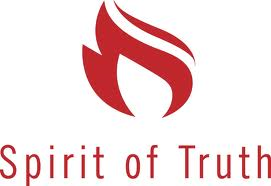Truth’s Beginning
In our family, the truth was highly valued. It was critical to raising children and instilling one of the most important measurement of one’s character.
We were told to tell the truth even if it meant punishment. Why? Because we truly believed that a lie, which would ultimately be discovered, carried grave consequences. Guess what? Lies still carry grave consequences especially in the 21st century when truth is not valued.
Truth Warning
John F. Kennedy, the thirty-fifth President of the USA, shared the following observation about truth.
The great enemy of the truth is very often not the lie — deliberate, contrived, and dishonest — but the myth — persistent, persuasive, and unrealistic.
What are the myths we are embracing today? In our personal lives, in our families, in our nation. What are the persistent, persuasive, and unrealistic myths we are “choosing” to include in our belief systems and personal views?
The Apostle Paul warned his young minister Timothy of the dangers that await him as new converts would “turn away their ears from the truth, and be turned unto fables” (2 Timothy 4:4).
Truth today is often packaged in many forms. Many are more speculation and creative editorializing, than substantive truth. Because of this trend, it is important that believers have a “real-time” reliable and trustworthy compass by which to navigate in this world. While our primary guide is the Word of God, as we discussed last week, God has also provided another source—the Holy Spirit, the Spirit of Truth.
The Source of Truth
Earlier we defined truth as that which agrees with reality. For the believer, our reality has been defined by what God has placed in His written Word.
For Jesus’ disciples, however, there was no written Word as they faced a hostile world without the presence of their Beloved Jesus (John 15:18-20). It was Jesus’ presence that gave them the courage to challenge the spiritual tyranny of the religious leaders. They would need God’s truth as they turned their focus to witnessing (Acts 1:8), baptizing and teaching (Matt. 28:19-20).
In John 14:16-16, Jesus promises to send the Spirit of Truth that would abide with them forever. It was the Holy Spirit Who would now come to live within them. We generally think of the Holy Spirit in terms of gifting or empowering believers to accomplish the purposes and ministries of Christ. However, the attribute Jesus chose to share with His disciples in John’s text focused on “truth”. It would be the Spirit of Truth that would assist the disciples as they were persecuted for their belief in Jesus Christ.
The Spirit of Truth-Yesterday, Today, and Forever
The Spirit of Truth would assist the disciples in accomplishing the “greater works” promised by Jesus (John 14:12). Jesus was indeed “the Way, the Truth, and the Life”. After Jesus’ departure, the ministry of truth would continue because the Spirit of Truth.
Like the disciples of the first century, believers in the 21st century have the assistance of the Spirit of Truth to assist them especially in exposing the spirit of error. The spirit of error is seen in the morays and life styles of the world. For unbelievers, it leads them to be deceived and disobedient to the purposes of God in their life (Ep. 2:2).
For the believer, the spirit of error tempts them to doubt God truth and draw them away from the leading of the Holy Spirit (2 Thess. 2:15). The Spirit of Truth stands ready to silence the lies, myths and fables of the 21st century. Our confidence lies in the promise, power, and presence of the Spirit of Truth. He is our True Compass as we search for truth.

